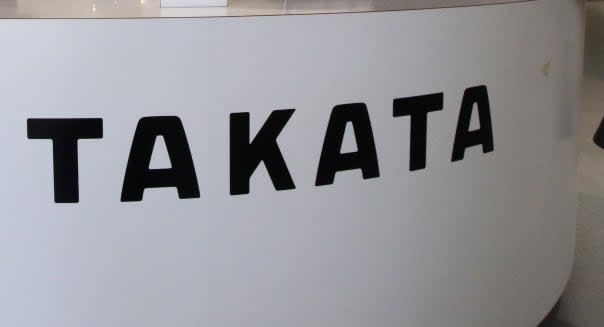Takata to Boost Production of Replacement Air Bag Inflators

By Ben Klayman
DETROIT -- Takata Corp. said Wednesday it plans to boost production of parts needed to replace potentially deadly air bag inflators that could spray vehicle occupants with metal shards.
On Tuesday, the Japanese supplier doubled its recall of the defective air bags to nearly 34 million vehicles, making it the largest automotive recall in U.S. history. Takata shares fell 10.2 percent to 1,353 yen Wednesday in Tokyo.
%VIRTUAL-WSSCourseInline-947%Takata's air bag inflators have been found to explode with too much force, spraying metal fragment inside cars and forcing automakers to recall more than 53 million vehicles worldwide since 2008. The component has been linked to six deaths, all in cars made by the supplier's top customer, Honda Motor (HMC).
A Takata spokesman said the company will boost output of the replacement parts to 1 million inflators a month by September, an increase of 100,000 parts from the previous forecast and up from the current monthly level of 500,000. He didn't specify if all the additional production would be added at Takata's inflator plant in Monclova, Mexico.
The spokesman added that the company had just passed 3.8 million replacement kits made in total.
Takata has faced pressure from U.S. safety regulators, lawmakers and its automaker customers to increase production of the replacement parts needed in the recall.
On Tuesday, Mark Rosekind, administrator for the U.S. National Highway Traffic Safety Administration, said he didn't know how long it would take to complete the Takata recall. "There is no question, it could be some years," he said.
Takata has said in the past it is working with other suppliers to increase availability of replacement parts.
Contingency Plans
General Motors (GM) said last December it had developed contingency plans to deal with a potential shortage of replacement parts, including directing Takata to share inflator specifications and data with rivals Autoliv and TRW so that any replacement parts would work in GM vehicles. A GM spokesman said on Wednesday there was no update on those plans, but that it was conducting extensive testing.
Autoliv said Wednesday it was ready to boost production capacity to meet increased demand for replacement air bag inflators needed in the Takata recall.
The Swedish company said in January it was targeting additional production capacity of up to 25 million air bag inflators for delivery in 2015 and 2016.
Autoliv spokesman Thomas Jonsson said Wednesday that the company is building replacement inflators for Honda and several other unidentified automakers, but he had no sense of how long it would take for the industry to meet the demand for replacement inflators.
A Honda spokesman said on Wednesday that the company also is using Japan's Daicel Corp. and TRW for replacement inflators. TRW was recently acquired by Germany's ZF Friedrichshafen.
Daicel said in February it would build a second U.S. plant for air bag inflators in early 2016, bringing forward plans partly to meet demand for alternatives to Takata's potentially deadly inflators. It said the previous month it would boost output of replacement inflators in Japan.
A Toyota Motor (TM) spokeswoman said Wednesday the company is working with Takata for most replacement inflators, but will use Daicel for some parts.
A spokesman for Nissan Motor said Wednesday that the company wouldn't comment about supplier selection or potential negotiations. Ford Motor (F) has previously said it has spoken with Takata rivals about buying replacement parts.
Last November, BMW disclosed Takata would shift inflator production for the German luxury automaker's vehicles to the Japanese supplier's plant in Germany from its factory in Mexico.
-With additional reporting by David Morgan in Washington.
